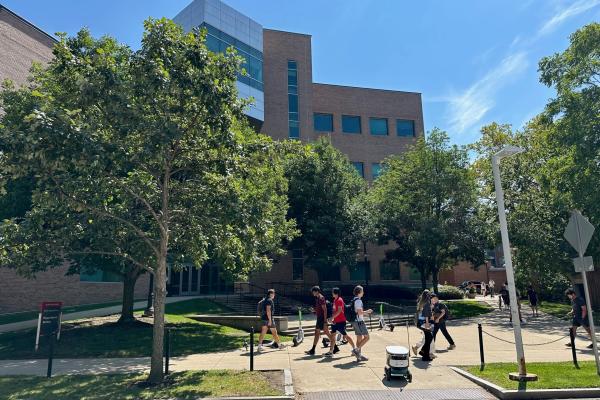
Dr. Zhen Wang
Measuring QGP Temperature via Thermal Dielectrons at RHIC-STAR
Location: 2128 Physics Research Building
Faculty Host: Daniel Brandenburg
Abstract: Ultra-relativistic heavy-ion collisions can create a Quark Gluon Plasma (QGP) in which quarks and gluons are liberated from confinement within nucleons. The thermodynamic and hydrodynamic properties of the QGP, such as temperature, baryon chemical potential, and viscosity, have been under intense investigation in theories with lattice Quantum Chromodynamics (QCD) calculations utilizing the world’s most powerful supercomputers and in experiments at the highest energy heavy-ion accelerators. Dielectron radiated from QGP are ideal penetrating probes of the true temperature of the emitting source since they do not suffer neither from strong final state interactions nor from blue-shift effects through the collective motion of the rapidly expanding system. The invariant mass distribution of thermal dielectrons in different mass regions enable us to extract the temperature of the hot QCD medium in different phases.
Recent measurements of the dielectron invariant mass spectra in Au+Au collisions with the STAR experiment will be presented in this talk. The temperature extracted from different centralities and collision energies will also be discussed.
